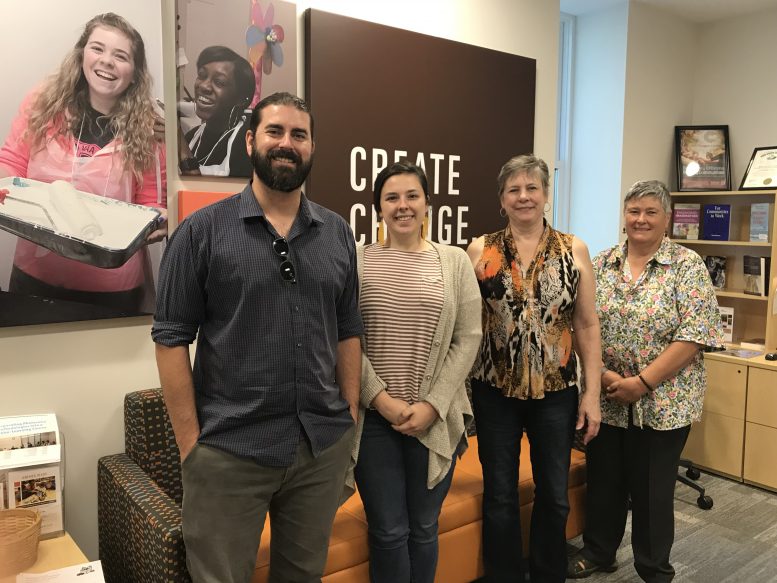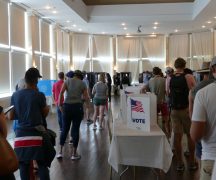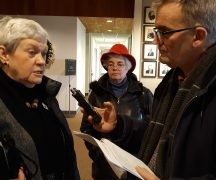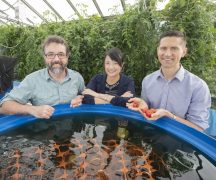By DAVID DUPONT
BG Independent News
A foundation created to promote the legacy of a voting rights martyr has honored Paul Valdez as a Campus Champion of the Year for his work promoting student voter participation at Bowling Green State University.
Valdez is the associate director for the Center for Public Impact at BGSU.
Two weeks ago, Valdez received, in a virtual ceremony, the Campus Champion Award from the Paul Goodman Foundation.
The foundation said of Valdez: “Leading by example, Paul’s passion for youth voter engagement is palpable and visible in every facet of the work.”
He uses existing networks and pathways, the foundation said, to achieve the goals of the program.
The foundation was created by the parents of Andrew Goodman. Goodman and Michael Schwerner, both Freedom Summer volunteers from New York City, and Mississippi civil rights activist James Chaney were murdered by the Ku Klux Klan in 1964 while registering African Americans to vote.
The Goodman Foundation, Valdez said, is just one of several national organizations that the BGSU Votes project partners with. Recently the BGSU was named one of the foundation’s five leader campuses.
“We have a long history with the Andrew Goodman Foundation in terms of the Vote Everywhere Program,” Valdez said.
BGSU draws innovative ideas from that program, and shares some of its best practices with other members.
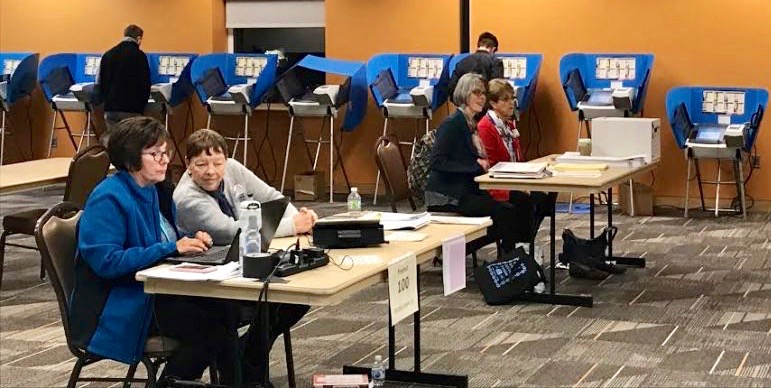
Valdez said that In 2016, 10 percent more BGSU students voted than in 2012, and in the 2018 midterms, 23 percent more students voted than in 2014.
Those figures come from the National Study of Learning, Voting, and Engagement, based at Tufts University, which provides a range of data that helps BGSU Votes workers design programs geared specifically to campus.
They show, despite a slight decline in eligible voters, that BGSU’s participation rose in every category. The campus still lags with a voting rate of 35 percent, compared to the 39.1 percent rate for all institutions.
Knowing those numbers, Valdez said, allows BGSU Votes “make data-driven decisions about how we spend our time.”
The key to reaching students is visibility. BGSU Votes makes its presence known at any major event that brings students together starting with move-in. Student volunteers donning their BGSU Votes t-shirts are on hand registering voters and answering questions.
And during the semester, project volunteers staff a table in the student union. The students also set up to provide information on the steps of the Education Building and in Jerome Library.
“It’s very peer driven,” Valdez said. “It’s student passion that’s driving it.”
The effort is strictly non-partisan, he said. Valdez said he doesn’t know the ideological persuasion of volunteers. It’s not a question he would ever ask. “I’m not venturing into those waters,” he said. “Our goal is to have all students aware of their rights and aware of the process.”
Volunteers “understand they are representatives of BGSU, and BGSU cannot support a candidate, cannot support of any issues.”
And “our volunteers really appreciate that.”
They tell Valdez that “it’s nice to know we have this type of thing on campus. I don’t necessarily want to do this in a partisan way.”
Valdez continued: “The students they interact with appreciate we’re not trying to sell them on a candidate or sell them on issue. They just want the information on how they get an absentee ballot or how do they early vote all, those kind of details.”
Valdez knows from his own experience the necessity of students being informed.
When he came to BGSU in 2000 from his Colorado home to study paleobiology, he thought he’d registered to vote when he signed up for the Selective Service. But when he went to cast his first ballot in the Bush-Gore presidential contest, he was told he wasn’t registered. He was offered a provisional ballot, but didn’t know what that was.
He didn’t understand the process, and that lesson made a lasting impression on him.
After earning a master’s degree in higher education and student affairs at Indiana University, he returned to BGSU in 2009 where he’s putting that lesson to good use.
This year’s Ohio primary provided unprecedented challenges with voting postponed at the last minute, and the election finally rescheduled. By the time the details emerged, he said, students were off campus.
However, because election day was originally set for spring week break, BGSU Votes had already been encouraging students to vote early.
With limits on large gatherings, BSU Votes will be working with other campus organizations to get students registered and to the polls.
The uncertainties mean that students need to decide early how they are going to vote.
In spring, there was some confusion and delays in getting absentee ballots that were exacerbated for students. Sometime the ballots were sent to their campus address, sometimes to their home addresses.
BGSU Votes doesn’t push one method of voting over another. “We just want to make sure students are aware of their options,” Valdez said. “Ultimately we try to have that conversation about what’s going to work best for you as a student, have an action plan. Some haven’t even thought about it.”
On national Vote Early Day, Oct. 24, BGSU Votes will provide free rides to the polls. Volunteers will also offer free rides on election day, Nov. 3.
“Every year that there’s a presidential election, there’s always a lot more activity on campus, a lot more visibility,” Valdez said. More people are talking about the election and that generates excitement.
This year, “people are getting messages about the integrity of elections,” he added.
BGSU Votes explains the processes and protections that are in place, and that they work. “This is reassuring for students and is critical at this time.”

